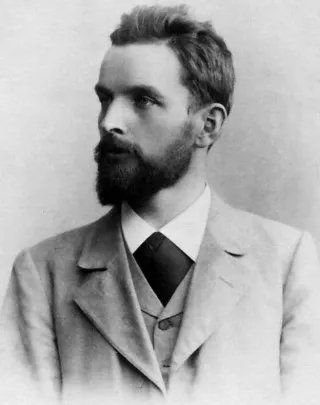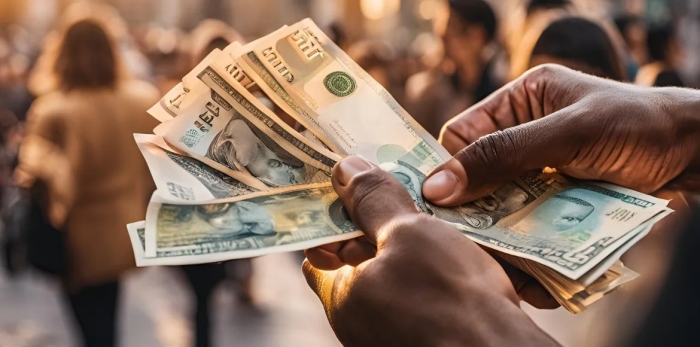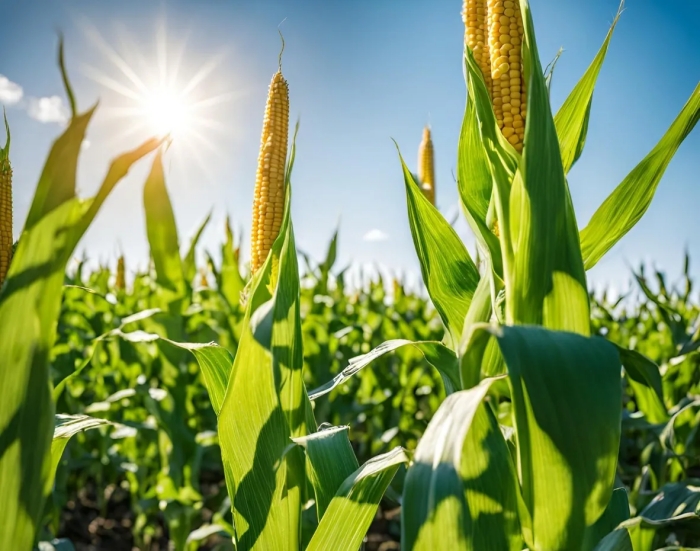Why Our Current Money Doesn't Work
Silvio Gesell's Observation
 | TEUN VAN SAMBEEK |
|---|---|
| 18 JANUARY 2025 |
When we forget the massive issues with the creation of money, and only look how money is currently applied, we can still see massive problems. These problems were already noticed by Silvio Gesell.

Who Is Silvio Gesell?
Gesell was a German economist and entrepreneur who lived from 1862 to 1930. As a young man he moved to Argentina as a representative of his older brother’s business. His experiences in the economically volatile environment of late-19th century Argentina provided him with deep insights into the dynamics of wealth creation and distribution and enabled him to develop an economic theory that was both straightforward and revolutionary. Despite not even having a university education, his economic theories and proposals attracted the attention of the best minds of his time, notably receiving five pages of discussion in the most important economics book of the 20th century, The General Theory by John Maynard Keynes. His ideas were also influential in the realm of economic policy, forming the basis of an economic reform package in 1899 that led to the longest period of sustained economic growth in the history of Argentina. From there, his ideas spread back to Europe, where they were embraced as potential solutions to the Great Depression.
Despite his profound influence in the first half of the 20th century, his name is virtually unknown today, especially in the English-speaking world.
Below we will summarize the main problems Silvio Gesell saw when he observed the use of money. The text is based on one of the video's from the Silvio Gesell Foundation.
Silvio Gesell’s Observation
According to Gesell, Money performs three primary functions:
It serves as a medium of exchange which allows the division of labor to expand beyond what would be possible using barter;
It functions as a unit of account which provides a standard measure which can be used to compare the values of all the different goods and services which make up an economy;
It serves as a store of value which enables people to save.
Gesell addresses the problem that the time frames of consumption and production often don't coincide. Gesell also states that it's not necessary to combine all three functions in one monetary instrument.
Silvio Gesell's main criticism of our existing form of money is that there's a fundamental contradiction when money is supposed to function both as a medium of exchange and as a store of value.
Gesell argued that it's impossible for one instrument to serve both functions effectively and that this has plagued all monetary economies since ancient times.
When money is changing hands, it only facilitates the exchange function, whereas money only serves as a store of value when it's not in motion money.
These two functions are exactly opposite. Asking money to serve as both a medium of exchange and a store of value simultaneously is like asking it to move and be stationary at the same time, which is a logical impossibility.
The result of this contradiction is that the store of value function of money prevents money from fulfilling its function as a medium of exchange.

The Manifestation Of The Contradiction
First we need to realize that the vast majority of real goods and services lose value with the passage of time. Food spoils, metal rusts, equipment breaks, and heat, cold, moisture, lack of moisture, insects and mold all attack matter and cause it to degrade. Because this property, almost all goods and services must be sold sooner rather than later. Failure to sell quickly or at all, leads to economic losses for those who produce them. A producer and consumer both suffer loss if they fail to reach an agreement because the products cannot be stored without causing economic losses.
The longer it takes to do a transaction, the greater the loss. This also apply to services. The longer a service is postponed, the larger the loss if the provider of the service that is waiting to provide the service.
Money in its capacity as a store of value is however expressly designed to be hoarded. Saving is hoarding money. Compared to using money in a transaction, barter is essentially fair. This is because in barter, the pressure to transact applies on both sides. When you trade meat for eggs, there is no point for either of the transaction partners to wait a week. When you however trade meat and gold, the pressure is on the meat seller, because the holder of the gold can just wait until the meat seller drops the price. Tho holder of gold can even walk away from the deal, which is a luxury the meat seller doesn't have when the market is small.
This is essentially what happens when we use money as a medium of exchange. The holders of money are granted a massive advantage over the producers of real goods and services who they negotiate with.
Gesell describes this dynamic in his book the natural economic order. He describes the interaction between holders of portable money and producers of real goods and services:
“The possessor of money holds demand like a hound on the leash and lets it slip at the quarry of his choice. The quarry of demand enters the market proudly, confident of an easy victory. Supply however appears dejected, like a beggar who expects more kicks than a half-pence.”
In the market place you have compulsion on the one hand and freedom on the other hand. The two together (compulsion and freedom) ultimately determine price. This unfair situation is constantly repeated because we have deliberately adopted a form of money that is immune to the forces which apply to almost all real goods and services.

Gold
Throughout most of human history we've used gold. Gold is one of the only substances on earth that is immune to the passage of time as money. We did that because we wanted money to serve as a store of value. While we appreciated the ease of gold's portability, we failed to consider the negative effects of its performance as a medium of exchange.
Gesell says that commerce is mathematically impossible with falling prices. Money (like gold) will inevitably fail to perform its function as a medium of exchange. This is why: When buyers that hold gold have an indication that prices are dropping, they would obviously postpone their purchase, since tomorrow they are be able to buy the same product for less.
This is exactly the reason why monetary economies periodically seize up and ultimately collapse when there's a general expectation of falling prices. Holders of money have an incentive to postpone their purchases as much as possible. The horrible nature of their money allows them to do so without suffering any loss. On the other side you however have the real goods and services that must be sold no matter what. The longer their holders wait to sell, the larger will be their losses. So the expectation of falling prices causes demand to shrink relative to supply. This way the expectation of shrinking prices becomes a self-fulfilling prophecy.
Now let's imagine for a moment that instead of gold we had chosen to use corn as money. If corn was used as money this problem of the imbalance between supply and demand wouldn't exist. This is because corn degrades just like the goods and services. Negotiations between producers of goods and services and holders of corn money would take place on a level playing field, just as they do in barter. The problem with corn is that corn is not a good store of value. It rots, it gets attacked by moisture, mold and insects. But if we're concerned exclusively with money's function as a medium of exchange, corn would be a much better choice than gold.

If money was subject to decay and lost value over time - like goods and services do - it would continue to circulate, regardless of whether prices were rising, falling or staying the same. But because money is exempt from this pressure, money stops circulating precisely at the time when society most needs it to do so. The reason why this happens is because money was designed to be used as a store of value.
So if we're forced to choose between these two functions - if money can only serve one of them - which one should we choose? Which function is more important?
We've already established that money's function as a medium of exchange is a matter of life and death. If our medium of exchange were to suddenly disappear, the division of labor would become impossible. Instead of having the efficiency of many different specialist jobs working together to get society going (which is called the division of labor), without a medium of exchange, everyone is forced to produce his own food and shelter. For most people this is however impossible, meaning that most of the people currently living on earth would die.

On the other hand, what would be the consequences if money could no longer be used to store wealth? Would anyone die as a result of that choice? Probably not. The functioning of the division of labor, which is the engine that creates all the goods and services we need to live, does not depend on money functioning as a store of value. In fact, nature provides us with many ways to store value. People who wish to store wealth can do so using gold, silver, precious stones, oil, livestock, agricultural products, etc.
Nature however does not provide us with a medium of exchange. By combining the function of medium of exchange and store of value, we fundamentally altered the essentially fair nature of barter. The use of money injects an element of unfairness into virtually every economic exchange.
A Different Medium Of Exchange Is Needed
This fundamental defect explains most of the big picture problems that have plagued economic systems since the invention of money. It explains poverty, economic inequality, periodic stagnation. All these chronic problems seem to be inevitable aspects of every economic system throughout history. They stem from the non-neutral nature of money which is a consequence of our irrational decision to combine our medium of exchange with a store of value.
This notion made Gesell to propose a different type of money. A proposal that is identical to the part of the core of what we call ”Ethical Money” and that can be found on our 1CoinH website.
In another article about Demurrage we will go into the actual solution that Gesell proposes and how that relates to the system we named 1CoinH.
Sources
The Contradiction at the Heart of Money
18 January 2025
Teun van Sambeek MSc, MRE

Be updated about Copiania progress: Sign Up
We are aware that the generated pdf has page break issues. If you have any other remarks or see errors in the translation please: Contact Us
▲ Up ▲